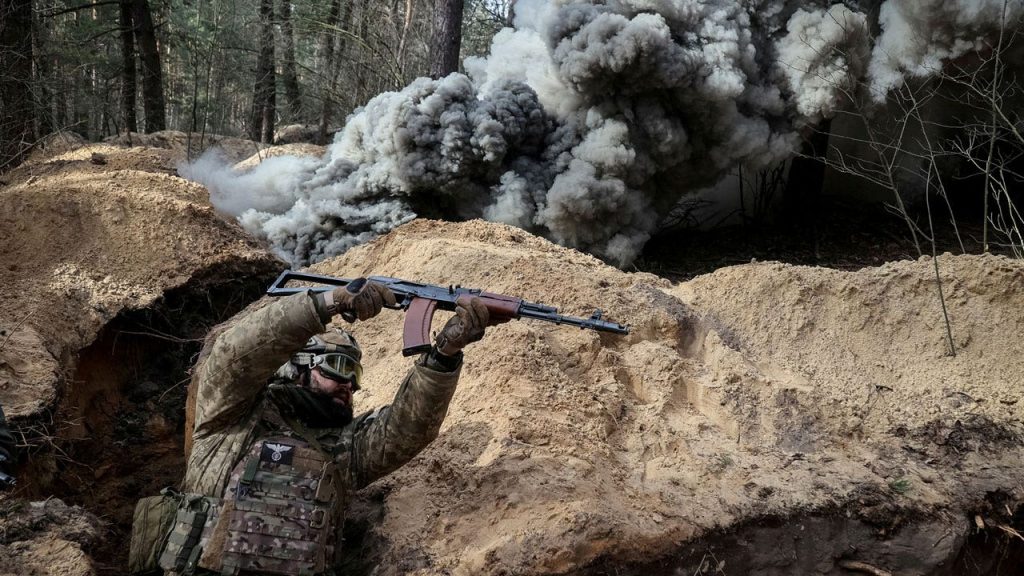The Ukrainian military has reported an increase in the illegal use of riot control agents, such as tear gas, by Russian forces on the eastern front. These agents, banned under the international Chemical Weapons Convention, are being used to clear trenches as Russia advances into Ukrainian territory. Ukrainian soldiers have described the effects of tear gas as similar to pepper spray, causing irritation and making it difficult to carry out their duties. While civilians can usually escape tear gas in urban settings, soldiers in trenches without gas masks must either flee under enemy fire or risk suffocating from the gas.
Colonel Serhii Pakhomov, in charge of the military’s atomic, biological, and chemical defense forces, stated that Ukraine has recorded around 900 uses of riot control agents by Russia in the past six months out of over 1,400 since the February 2022 invasion. The use of tear gas grenades containing CS, CN, and other gases has resulted in 500 Ukrainian troops requiring medical help after exposure to toxic substances. At least one soldier has died from suffocating on tear gas. The Ukrainian military is distributing gas masks and conducting drills to prepare soldiers to defend against such attacks.
As Russian forces slowly advance in the east, gas attacks have become more frequent. Doctor Volodymyr in the Donetsk region reported seeing an average of two soldiers a week with gas attack symptoms, including bitterness in the mouth, dizziness, and irritation. Natalia Khovanets, a head nurse in Luhansk, mentioned treating soldiers who were hit with tear gas grenades dropped by Russian drones. The symptoms included dizziness and bitterness in the mouth, which were classified as mild and manageable without outside assistance.
The Organisation for the Prohibition of Chemical Weapons (OPCW) has not received any requests for investigation or technical assistance related to the alleged use of banned chemicals in the Ukraine conflict. However, the use of riot control agents as weapons by Russian troops has been widely debated at OPCW meetings. The Ukrainian military has special groups tasked with documenting cases of alleged toxic chemical use, collecting evidence and contaminated ground samples for analysis. The difficult conditions of heavy artillery fire and fighting often prevent these groups from visiting trenches, making documentation and accountability challenging.
The use of riot control agents by Russian forces in the conflict has raised concerns about violations of international agreements and the potential impact on Ukrainian soldiers’ health and ability to defend their positions. The increased number of gas attacks in recent months has led to a growing need for gas masks and training among Ukrainian troops. Despite the challenges of documenting and verifying cases of chemical weapon use, efforts are being made by Ukrainian authorities to gather evidence and hold those responsible for illegal attacks accountable. The ongoing conflict in Ukraine highlights the devastating consequences of using banned chemical substances in warfare and the importance of upholding international laws and norms.


